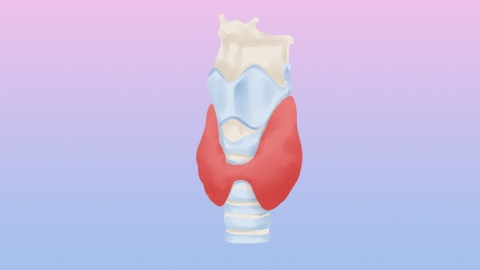What are the causes of hyperthyroidism?
In general, hyperthyroidism may be caused by pregnancy, excessive mental stress, toxic diffuse goiter, thyroiditis, pituitary tumors, or other factors. If experiencing any discomfort, it is recommended to seek timely diagnosis and treatment at a regular hospital. Detailed explanations are as follows:
1. Pregnancy
During pregnancy, women experience elevated levels of human chorionic gonadotropin (hCG), which may stimulate the thyroid gland to secrete excessive thyroid hormones, causing temporary hyperthyroidism. Thyroid function should be monitored regularly during pregnancy. Dietary adjustments should follow medical advice, including adequate intake of protein and vitamins, while avoiding excessive iodine supplementation.
2. Excessive Mental Stress
Long-term anxiety or excessive mental stress may affect the hypothalamic-pituitary-thyroid axis, leading to abnormal overproduction of thyroid hormones. Learning emotional regulation through activities such as exercise, listening to music, and communication can help relieve stress. Maintaining a calm mindset, regular sleep patterns, and avoiding long-term sleep deprivation are also important.

3. Toxic Diffuse Goiter
This is an autoimmune disease in which antibodies produced by the body stimulate thyroid cells to excessively secrete thyroid hormones. Patients should take medications such as methimazole tablets, propylthiouracil tablets, and propranolol hydrochloride tablets under medical guidance. Adequate rest should be ensured, strenuous exercise avoided, and intake of iodine-rich foods reduced.
4. Thyroiditis
When thyroiditis is caused by bacterial or viral infections, thyroid follicles are damaged, releasing large amounts of stored thyroid hormones into the bloodstream, which can lead to hyperthyroidism. Patients should take medications such as ibuprofen sustained-release capsules, prednisone acetate tablets, and levothyroxine sodium tablets under medical supervision. Keeping warm to avoid cold exposure and enhancing immunity are also recommended.
5. Pituitary Tumor
A pituitary tumor may cause excessive secretion of thyroid-stimulating hormone (TSH), which in turn stimulates the thyroid gland to produce excessive thyroid hormones. Patients should take medications such as bromocriptine mesylate tablets, cabergoline tablets, and octreotide acetate microspheres for injection under medical guidance. Regular follow-ups to monitor pituitary function and tumor size are necessary, and surgical treatment may be required when indicated.
In daily life, maintaining a balanced diet and avoiding overeating or excessive dieting are important. Regular exercise helps strengthen physical fitness, and routine thyroid function tests allow for early detection and timely intervention when necessary.









